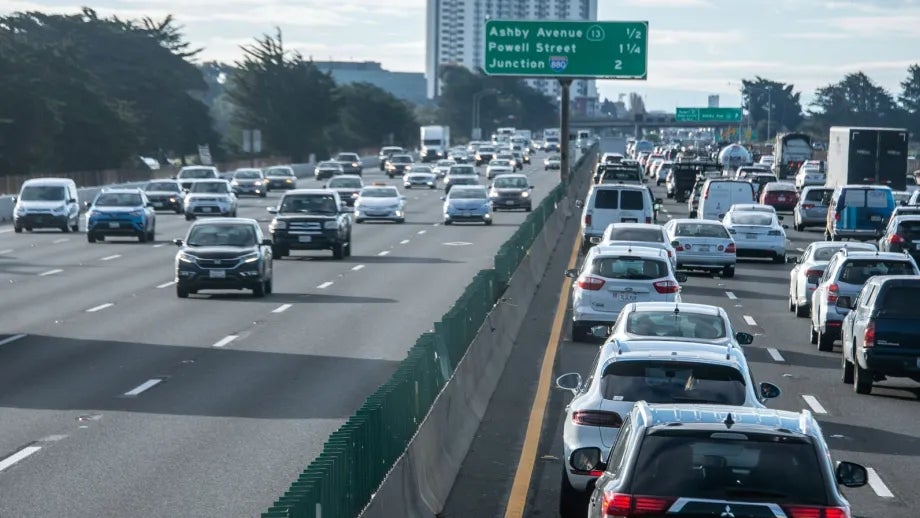New Report Prescribes Fresh Commitment to Interstate Highways
The Committee for a Study of the Future Interstate Highway System, whose 14 members include MTC Executive Director Steve Heminger as well as former San Jose Mayor, U.S. Representative and U.S. Secretary of Transportation Norm Mineta, today released its consensus report.
The report, entitled Renewing the National Commitment to the Interstate Highway System, identifies several key challenges facing our nation’s aging and overburdened freeway system and urges Congress to pass legislation creating an Interstate Highway System Renewal and Modernization Program. The committee recommends this program, known as RAMP for short, focus on rebuilding deteriorated freeways (including foundations, pavement and bridges); adding more vehicle capacity and integrating tolling where needed to improve operations and demand management; and increasing the system’s resilience.
Looming challenges identified by the committee include:
- Rebuilding Interstate highways before they become unserviceable and less safe;
- Meeting the growing demand for physical capacity and for more active and innovative management of capacity — especially in urban regions like the Bay Area;
- Ensuring the Interstate system remains responsive to and aligned with continued changes in the country’s population and economy;
- Improving system safety;
- Making the system adaptable to changing vehicle technologies;
- Adopting ways to pay for the system that are both efficient and equitable; and
- Incorporating future climate conditions into infrastructure and operations planning.
Fleshing out its policy position that Congress establish the RAMP program, the committee recommends that RAMP:
- Reinforce the traditional partnership between state and federal governments;
- Ensure the federal share of project spending is comparable to 90 percent share of for the original Interstate Highway Construction Program;
- Employ a cost-to-complete approach in which the federal government commits to support projects from start to finish, but with a cap on total federal funding;
- Develop transition plans for updating system uniformity standards to accommodate changing vehicle and highway technologies, environmental and climate conditions, and usage patterns.
The committee further recommends that Congress:
- Raise the federal tax on motor fuels to a level that will support RAMP investment;
- Adjust the tax as needed to account for inflation and changes in fuel economy;
- Prepare for new state and federal funding arrangements such as tolls or per-mile charges;
- Lift the ban on tolling of general purpose lanes on Interstate highways; and
- Right-size the Interstate system to ensure adequate connectivity with other passenger and freight modes; ensure access to growing centers of population and commerce; ensure the system’s resilience; and preserve the system’s responsiveness to national defense needs.
The Committee for a Study of the Future Interstate Highway System was established by the Transportation Research Board, which is part of the National Academies of Sciences, Engineering and Medicine.


Submit your comment
In order to receive a reply to your comment, please provide an email address.